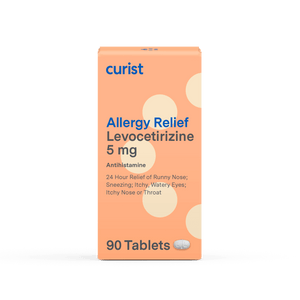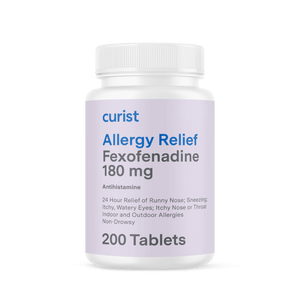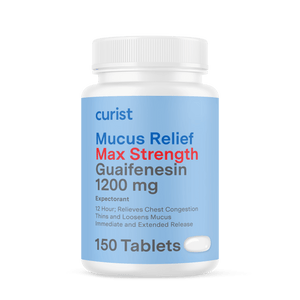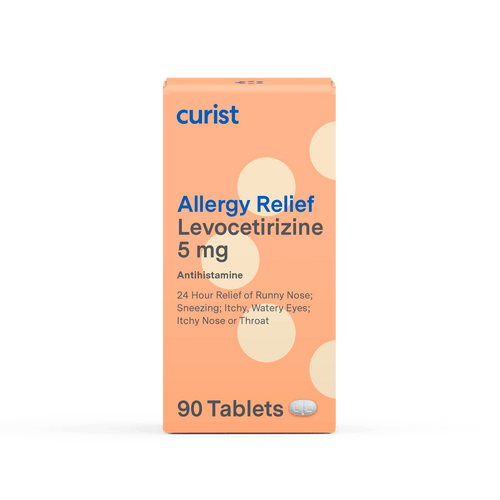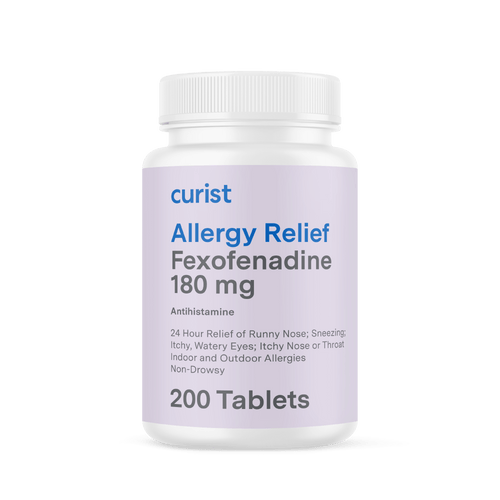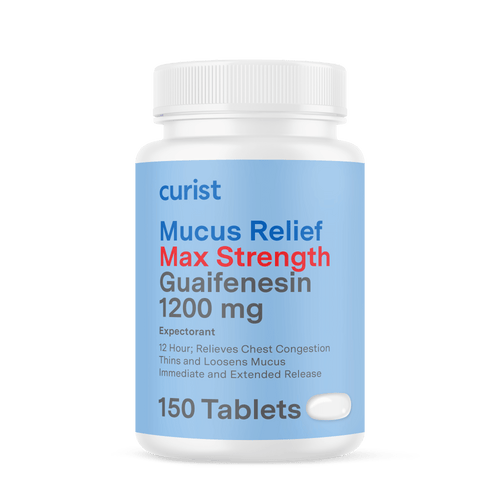by Dr. Marc Goldstein, MD, Curist Allergy Advisor
Curist delivers over-the-counter medicines to your door at a fraction of the price of traditional brands. We hope everyone stays safe and healthy during this time.
If you’re reading this, you might be familiar with the agony of a congested nose. Or the irritation of a runny nose that’s leaking like a faucet. Perhaps you’re all too familiar with incessant itchiness tickling inside your nostrils.
In short—there’s no shortage of nasal symptoms once allergies come along.
What Causes Nose Allergy Symptoms?
Because allergens in the air enter your nose each time you breathe, you can understand why the nasal passageways are their first stop for wreaking havoc. When your nasal passageways detect allergens, they react by swelling up.
The result is never much fun, especially considering that breathing in and out is a somewhat important habit.
Luckily there’s help!
Nasal Steroid Sprays
Nasal steroid sprays are medicines that help you breathe through your nose by reducing inflammation. Spraying your sinuses and nasal mucous membranes shrinks the tissue back to normal size. This helps to reduce congestion.
Why Spray Up Your Nostril?
Fair question. Since steroid pills have many side effects, doctors usually don’t prescribe them to treat hay fever symptoms (except in extreme cases for a limited period of days).
Nasal steroids are the best way to provide local nasal anti-inflammatory effects without exposing someone to the complications from oral steroids.
Nasal steroids work well for all hay fever symptoms such as congestion, runny nose, itching, and swelling of nasal passageway.
They are also helpful in decreasing nasal polyps, which are non-cancerous, benign growths that occur in the lining of the nasal and sinus tissues.
What About Afrin for Congestion?
Nasal steroids are different from other over-the-counter nasal sprays that you can get for congestion, like Afrin or Neo-Synephrine. The latter two medications can be used for short periods of time, but can produce rebound swelling in the nose with prolonged use and can make congestion worse over time, so they are not used regularly for nasal allergies. In contrast, steroid sprays do not produce rebound effects so are better for prolonged use as often is the case for treating allergies.
How To: Nasal Steroid Sprays
Nasal steroids work best when used everyday or at least throughout the pollen season. Some people who use nasal steroids just when needed, get some level of relief. Regular daily use, however, gives much better symptom relief.
Nasal steroids usually offer the best relief when used more than 2 weeks prior to pollen season limiting daytime symptoms, and improving sleeping at night as well.
So Which Nasal Steroid Sprays are Available Over-the-Counter?
There are several types of nasal steroids available over-the-counter. These include: fluticasone (brand name Flonase and available at Curist here), budesonide (brand name Rhinocort), and triamcinolone (brand name Nasacort). All of these drugs have very similar effectiveness.
Should I Be Concerned About Steriods?
The short answer is no, especially for adults.
There is some concern using steriods in general and in children as use over time may stunt growth in children. However, these risks apply much more to long-term use of inhaled and oral steroids. Because very little of the nasal steroid is absorbed in the bloodstream, the nasal steroids available have significantly limited potential side effects.
Children and adults can safely use these medicines, but should always consult with the Drug Facts labeling.
General Tips to Use Your Nasal Steroid Spray?
Each nasal steroid comes with its own set of dosing instructions and are usually used once or twice a day with the numbers of sprays in each nostril limited to 1 or 2. Most steroid sprays can be used in the following manner:
- Wash your hands before use.
- Gently blow your nose and clear the nasal passageway for mucus and nasal crusts.
- Shake the canister several times, keep your head upright, do not tilt your head back.
- Breathe out.
- Block one nostril with your finger.
- Insert the nasal applicator into the other nostril.
- Aim the nasal steroid spray toward the outer wall of the nostril paying particular attention to avoid the septum- the center part of the nasal airway separating the right and left nostrils.
- Inhale slowly through the nose and press the spray applicator.
- Breathe out and repeat to apply the prescribed number of sprays.
- Repeat the steps on the other nostril. Avoid sneezing or blowing your nose right after using the spray as well.
What Are Some Potential Side Effects of Nasal Steroid Sprays?
Generally, nasal steroid sprays work only in the nasal airway without affecting other parts of the body...unless they are overused. It is important to always follow the dosing instructions you receive for nasal steroid sprays (or any medicine you take).
Still, there are a few side effects to be aware of when using nasal steroid sprays. These range from mild to (occasionally) more severe:
Mild Side Effects
- Dryness, burning, stinging sometimes can occur in the nasal passage airway with use of nasal steroid sprays. This can be reduced if using the nasal spray after you wash your face or shower.
- Nasal steroids may also cause temporary sneezing, throat irritation, a feeling in your throat of postnasal drip, or headaches.
More Severe Side Effects
- Nasal spray may in some instances cause bleeding, and more rare cases, erosions of the septum called septal perforation. If these occur, stop use, and consult a doctor.
- Rarely, infections can develop in the nasal passage way.
The Allergy Nasal Steroid Spray Take-away?
If you’re suffering from nasal allergy symptoms, nasal steroid sprays may be one effective and safe option within reach for finding relief. To learn more, check out these articles about runny nose and itchy nose.
Shop Curist Allergy Nasal Spray for great savings relative to the brand-name Flonase spray.




